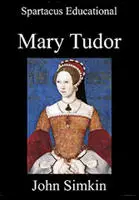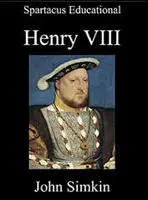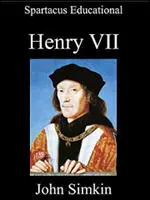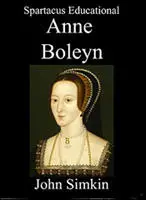Edward de Vere, 17th Earl of Oxford
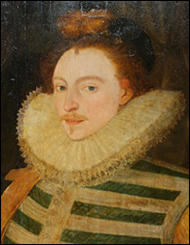
Edward de Vere, the only son of John de Vere, sixteenth earl of Oxford, was born at Castle Hedingham, on 12th April 1550. In his early years he was known as Lord Bulbeck. He was educated at Queens' College and tutored in the household of Sir Thomas Smith by Thomas Fowle. (1)
Upon his father's death on 3rd August 1562 he succeeded to the earldom of Oxford and other hereditary titles, including the ceremonial office of lord great chamberlain. His title had been passed down in unbroken succession since the twelfth century. His inheritance was worth some £12,000 per annum. (2)
As a royal ward he came under the guardianship of William Cecil, master of the Court of Wards. Cecil arranged for Oxford to learn French, Latin, penmanship, and dancing. "An early taste for literature is evidenced in his purchases of books by Chaucer, Plutarch (in French), Cicero, and Plato (probably in Latin)". (3)
Oxford accompanied Queen Elizabeth on a visit to Cambridge in August 1564, and to Oxford in September 1566. In July 1567, while practising the art of fencing with a Westminster tailor in the garden of Cecil House, he killed an unarmed undercook, Thomas Brincknell. According to Mathew Lyons he was using the technique, called foining, involved lunging forward with point unguarded to pierce the thigh". (4) A coroner's jury which was openly influenced by Cecil, and which included Raphael Holinshed, spared Oxford, with the finding that Brincknell had committed suicide by "running upon a point of a fence-sword of the... Earl of Oxford". (5)
Queen Elizabeth and Edward de Vere
Edward de Vere father had been in great debt when he died and it was not until May, 1572, that he was finally granted the income of £666. During his minority as the Queen's ward, one third of his estate had already reverted to the Crown, much of which went to Robert Dudley, Earl of Leicester. (6)
It was claimed by Gilbert Talbot, 7th Earl of Shrewsbury, that by 1572 the Queen was infatuated by Edward de Vere: "The Queen's Majesty delighteth more in his personage and his dancing and valiantness than any other". (7) This caused some scandal as Oxford was twenty-two and Elizabeth thirty-nine, at the time. Richard Rex, the author of Elizabeth: Fortune's Bastard (2007) has argued that he was "a worthless wallflower" and "made no political impact despite the initial appeal which he had for the queen". (8)
Although the Queen eventually stopped seeing him as a romantic figure during this period he became a popular figure in the Royal Court: "Edward de Vere, 17th Earl of Oxford, was a young man of high birth, arresting presence and exceptionally disagreeable temper. A pathological selfishness did not deprive him of attraction, and though very poor, he attained for a short time the peak of fashionable celebrity; spoiled and ruthless as he was, the Maids of Honour were wild about him." (9)
Oxford was also considered a talented poet. (10) It has been suggested that his poetry was described as the "new lyricism" that had been influenced by French writers. "Oxford was a conceited and mercurial young man of literary promise, and because of his ancient lineage indulged by Elizabeth. For a brief time he became the idol of her court." (11)
Marriage to Anne Cecil
Oxford was a popular man with the ladies of the Royal Court and there was some surprise when his offer of marriage to Anne Cecil, the daughter of William Cecil, Lord Burghley, was accepted: "The girl was fifteen years old, and as she was not a beauty, surprise as well as bitterness was felt by her contemporaries.... though Oxford was not the son-in-law he would have chosen, the connection brought distinction, and as Ann Cecil was of course in love with the young man, her father put a good face on it." (12)
The wedding took place on 19th December 1571. A daughter, Elizabeth de Vere, was born, but the marriage was an unhappy one. According to his father-in-law, Oxford was "enticed by certain lewd persons to be a stranger to his wife". He often clashed with Lord Burghley. He objected to the prosecution of Thomas Howard, 4th Duke of Norfolk, and was suspected of arranging an abortive plot to rescue him from the Tower of London. (13)
Richard Rex has argued that Oxford "was certainly one of the most colourful personalities of the age... but a deep vein of instability flawed his character". (14) Mathew Lyons has added that he "lacked the will, discipline and motivation to succeed politically at court: hard graft was not his style and his promise would always be betrayed by a shallow impetuosity". (15)
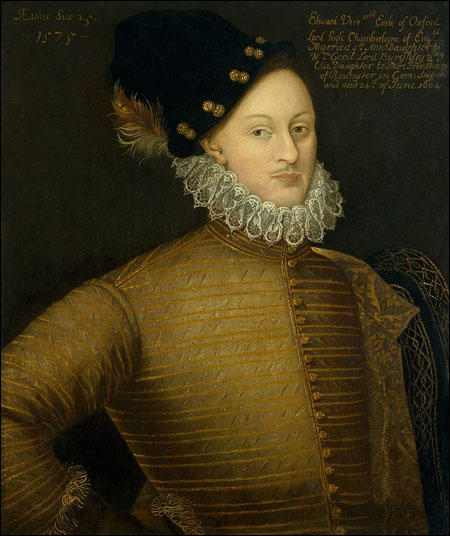
Early in July 1574 Oxford departed without licence for Flanders, the refuge of northern English Catholic nobility. Furious, the Queen dispatched Thomas Bedingfield, to fetch him back. With the help of William Cecil, the Queen forgave him and agreed to allow Oxford to travel abroad with licence. He left early in February 1575 and visited Paris and Strasbourg before making his way to Venice. Over the next year he visited Padua, Siena, and Milan, among other cities. He finally arrived back in Dover on 20th April 1576. "Oxford made himself fashionable by sporting imported embroidered gloves, sweet-bags, perfumed leather jerkins, and costly washes or perfumes, and ingratiated himself with the Queen by presenting her with perfumed gloves trimmed with tufts or roses of coloured silk." (16)
Queen Elizabeth was so delighted with the scent on the gloves she called it "my Lord of Oxford's perfume". (17) However, she told him off for not behaving properly to his wife. According to his biographer, Alan H. Nelson, Oxford was "notorious in his own time for his effeminate dress" and was accused of sexual activity with a young "choirboy" who had been living with him in London. (18) Oxford was also an associate of the homosexual writer, Christopher Marlowe. (19)
| Spartacus E-Books (Price £0.99 / $1.50) | ||||||
|---|---|---|---|---|---|---|
William Cecil urged Edward de Vere to issue a statement giving his reasons for leaving his wife. Oxford wrote in reply: "I will not blazon or publish it until it please me. And last of all, I mean not to weary my life any more with such troubles and molestations as I have endured, nor will I, to please your Lordship only, discontent myself... Always I have, and I will still, prefer mine own content before others." (20)
According to the French ambassador Michel de Castelnau, in June 1577, Oxford approached him and offered to head a Catholic revolt. The following month he contacted Castelnau and asked him to arrange a safe passage out of England for a Catholic priest. Castelnau did not respond to these approaches in case he was being set-up by the security services. (21) The historian, Philippa Jones, has argued his support for Catholic causes only lasted for a short period. (22)
In August 1579 Philip Sidney was playing on a tennis-court when Oxford, "strode on... and demanded that Sidney, cede the court to him, his obvious social superior. Sidney, who was no less lacking in self-regard, stood his ground; his patronizing demurral - in essence telling Oxford to look to his manners - brought forth all the aristocrat's raging hauteur, and he called Sidney a puppy." Sidney challenged Oxford to a duel but the Queen intervened reminding him that "deference to one's superiors was fundamental to an ordered society." (23)
Expelled from the Royal Court
On 16th December 1580 Oxford denounced Henry Howard, 1st Earl of Northampton, Charles Arundel and Francis Southwell, to Queen Elizabeth as a Catholic sympathizers. (24) All three men were arrested and during his interrogation, Howard, commented that Oxford was constantly complaining about the Queen and because the three men defended her, he had turned against them. He claimed that Oxford had said that she "had the worst voice and did everything with the worst grace that ever woman did". As a result of this statement Oxford was briefly imprisoned. (25)
Edward de Vere, 17th Earl of Oxford, had innumerable affairs with women and men. David Riggs, the author of The World of Christopher Marlowe (2004) has claimed that the "Earl of Oxford, the leading patron of boy actors in the mid-1580s, was himself a pederast, the only titled Elizabethan to be charged with sodomy." (26) This included a relationship with Anne Vavasour, one the Maids of the Queen's Bedchamber. On 23rd March 1581 she gave birth to Edward Vere, who later had a military career. (27) Oxford paid Anne £2,000 to keep her quiet but this did not stop the news reaching the Queen. (28) When she received the information she immediately sent both of them to the Tower of London. (29)
Oxford was was released in June 1581 and in December was back living with Anne Cecil. Over the next few years he had three more children with his wife, this included a son who died soon after being born (1583), Bridget (1584-1631) and Susan (1587-1628). His behaviour was not forgiven by the Queen and was rejected as a Knight of the Garter. (30)
In March 1582 there was a skirmish in the streets of London between Oxford and Anne's uncle, Sir Thomas Knyvet. Oxford was wounded and his servant killed; reports conflict as to whether Kynvet was also injured. There was another fray between Knyvet's and Oxford's retinues on 18th June, and a third six days later, where it was reported that Knyvet had killed another of Oxford's supporters. (31)
According to Paul Hyland, in the early 1580s Oxford was a member of "a collection of thinkers, tightly knit or loosely grouped, whose passion was to explore the world and the mind". The group included the adventurer, Walter Raleigh, the astronomer, Thomas Harriot, the geographers, Richard Hakluyt and Robert Hues, the mathematician, Walter Warner, and the writers, Christopher Marlowe, Thomas Kyd, George Chapman and Matthew Roydon. The men would either meet at the homes of Raleigh, Oxford and Henry Percy, 9th Earl of Northumberland. (32)
It has been claimed that these men were atheists. In reality they were sceptics (someone who doubts the authenticity of accepted beliefs). At various times Oxford was quoted as saying the Bible was "only... to hold men in obedience, and was man's device" and "that the blessed virgin made a fault... and that Joseph was a wittol (cuckold). Oxford did not believe in heaven and hell and declared "that after this life we should be as we had never been and the rest was devised but to make us afraid like babes and children of our shadows". (33)
Edward de Vere became friends were several writers. He also employed John Lyly, the author of Euphues: The Anatomy of Wit (1578), as his private secretary. He also formed an acting group known as "Oxford's Boys" to put on plays by Lely. On 1st January, 1584, Oxford's group performed Lyly's Campaspe before Queen Elizabeth. Three months later he arranged for Lyly's Sapho and Phao, to be shown at the Royal Court. (34)
Oxford's wife, Anne Cecil, died at Greenwich Palace on 5th June 1588, and was buried in state at Westminster Abbey on 25th June. Oxford married Elizabeth Trentham, a Maid of Honour to Queen Elizabeth, in December, 1591. She brought her husband a dowry of £1,000. The newly married couple resided at Stoke Newington, where their son, Henry de Vere, was born on 24 February 1593. (35)
Oxford seemed to fall-out with Walter Raleigh. Oxford's former friend, Henry Howard, reported to the government that he been involved in the planning of Raleigh's murder. Howard claimed that he wanted to make it look like he had been killed by the "servants" of Robert Dudley, Earl of Leicester. (36)
Edward de Vere, 17th Earl of Oxford, died on 24th June 1604.
Primary Sources
(1) Elizabeth Jenkins, Elizabeth the Great (1958)
Edward de Vere, 17th Earl of Oxford, was a young man of high birth, arresting presence and exceptionally disagreeable temper. A pathological selfishness did not deprive him of attraction, and though very poor, he attained for a short time the peak of fashionable celebrity; spoiled and ruthless as he was, the Maids of Honour were wild about him....
In 1571 the young man proposed for Burleigh's favourite daughter, Ann. The girl was fifteen years old, and as she was not a beauty, surprise as well as bitterness was felt by her contemporaries. The Cecils were not highly born but Burleigh's position made the match an eligible one; though Oxford was not the son-in-law he would have chosen, the connection brought distinction, and as Ann Cecil was of course in love with the young man, her father put a good face on it.
(2) Richard Rex, Elizabeth: Fortune's Bastard (2007)
Earl of Oxford, a worthless wallflower, made no political impact despite the initial appeal which he had for the queen. He was certainly one of the most colourful personalities of the age. But a deep vein of instability flawed his character. From the curious episode of his youth in Cecil's household - when an unfortunate cook was deemed by a coroner's jury to have committed suicide by running upon the earl's sword! - to his short-lived conversion to Roman Catholicism, his ill-fated marriage to Cecil's daughter, and his scandalous affair with the nymphomaniac Anne Vavasour (one of Elizabeth's Maids of the Bedchamber), his career was an object lesson in political failure.
Student Activities
Codes and Codebreaking (Answer Commentary)
Francis Walsingham - Codes & Codebreaking (Answer Commentary)
Henry VIII (Answer Commentary)
Henry VII: A Wise or Wicked Ruler? (Answer Commentary)
Henry VIII: Catherine of Aragon or Anne Boleyn?
Was Henry VIII's son, Henry FitzRoy, murdered?
Hans Holbein and Henry VIII (Answer Commentary)
The Marriage of Prince Arthur and Catherine of Aragon (Answer Commentary)
Henry VIII and Anne of Cleves (Answer Commentary)
Was Queen Catherine Howard guilty of treason? (Answer Commentary)
Anne Boleyn - Religious Reformer (Answer Commentary)
Did Anne Boleyn have six fingers on her right hand? A Study in Catholic Propaganda (Answer Commentary)
Why were women hostile to Henry VIII's marriage to Anne Boleyn? (Answer Commentary)
Catherine Parr and Women's Rights (Answer Commentary)
Women, Politics and Henry VIII (Answer Commentary)
Historians and Novelists on Thomas Cromwell (Answer Commentary)
Martin Luther and Thomas Müntzer (Answer Commentary)
Martin Luther and Hitler's Anti-Semitism (Answer Commentary)
Martin Luther and the Reformation (Answer Commentary)
Mary Tudor and Heretics (Answer Commentary)
Joan Bocher - Anabaptist (Answer Commentary)
Anne Askew – Burnt at the Stake (Answer Commentary)
Elizabeth Barton and Henry VIII (Answer Commentary)
Execution of Margaret Cheyney (Answer Commentary)
Robert Aske (Answer Commentary)
Dissolution of the Monasteries (Answer Commentary)
Pilgrimage of Grace (Answer Commentary)
Poverty in Tudor England (Answer Commentary)
Why did Queen Elizabeth not get married? (Answer Commentary)
Sir Thomas More: Saint or Sinner? (Answer Commentary)
Hans Holbein's Art and Religious Propaganda (Answer Commentary)
1517 May Day Riots: How do historians know what happened? (Answer Commentary)

